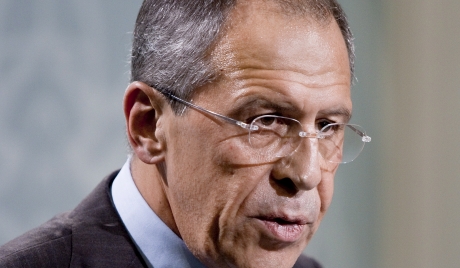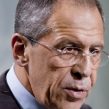
Lavrov Hints at Fomenting Ethnic Tensions Inside Georgia
Publication: Eurasia Daily Monitor Volume: 7 Issue: 132
By:

Russian Foreign Minister, Sergei Lavrov, has outlined a revised and updated policy of regime change towards Georgia. Interviewed on July 8 by the Mir television channel, Lavrov raised the possibility of fomenting tensions among the Armenian and Azeri ethnic minorities inside Georgia.
Lavrov urged Georgia to “restore normal relations with the Ossetians and Abkhaz living in that region, as well as with the peoples living inside Georgia, such as the Armenians, Azeris, and some other [sic] ethnic minorities.” He accuses Georgia of committing “big enough violations in the sphere of ethnic minority rights in the country,” and he complains that the Council of Europe ignores or keeps silent over those alleged violations (ITAR-TASS, July 8).
With this, Lavrov became the first senior Russian official in memory to hint openly that Moscow might stir up ethnic minority tensions in Georgia. Treating Georgia’s authorities as illegitimate in his interview, Lavrov placed his warning about ethnic tensions clearly in the context of Russia’s regime-change policy toward Georgia. This messenger carries double weight, as Lavrov descends in part from a Tbilisi-Armenian family. The choice of medium is also significant, as Mir TV broadcasts to CIS countries, including those in the South Caucasus.
This statement indicates that Moscow seeks instruments of destabilization in Georgia’s provinces, following the defeat of pro-Moscow politicians in Tbilisi. The local elections, held country-wide on May 30, produced a massive popular mandate for the government, brought opposition groups loyal to the state and the constitution into the system, and underscored the marginality of Russia’s political protégés.
Moscow cannot acknowledge any of this publicly. Thus, Lavrov insisted in his interview that “Saakashvili’s regime does not represent the Georgian people, it is an anomaly that does not originate from within Georgian society, but was brought in from outside” (a swipe delivered three days after US Secretary of State, Hillary Clinton, visited Tbilisi).
Nevertheless, a disappointed Moscow has apparently suspended or ceased its support to Georgian political protégés. Nino Burjanadze seems to have practically withdrawn from politics; and Zurab Noghaideli announced on July 7 that his group would suspend its talks with Moscow, ostensibly testing the Georgian government’s capacity to initiate a dialogue with Russia unconditionally (ITAR-TASS, July 7).
Retrospectively, Moscow must be counting the third failure of its attempts to create a pro-Russian political camp in Georgia. The KGB-successor network in the late 1990’s (as personified by Igor Giorgadze), radical-fringe street protesters in subsequent years, and finally the establishment figures recruited by Moscow after the 2008 war, failed one after another due to lack of popular support among Georgians. Moreover, for similar reasons, Moscow has now decided to seek allies of convenience among Georgia’s ethnic minorities.
Beyond Abkhazia and South Ossetia, Russian authorities have not attempted to provoke ethnic tensions in Georgia’s interior in any systematic way until now. Georgia’s Armenian and Azeri-inhabited areas (in parts of Samtskhe-Javakheti and Kvemo-Kartli, respectively) vote as a rule overwhelmingly in favor of the authorities in presidential and parliamentary elections. Thus, Lavrov has fired an early opening shot for Russia regarding Georgia’s 2012 parliamentary and presidential campaigns, the new Russian timeline for regime change in Georgia.
The minorities’ situation is not problem-free regarding language instruction (complaints are about insufficient instruction in Georgian for the minorities, not over assimilation) or the status of some Armenian parishes and church buildings. However, no credible international organization is known to substantiate Lavrov’s allegations about Georgian “violations of the rights of ethnic minorities.” Moscow’s sudden intervention in this area seems designed to politicize and inflame the ethnic minority issues (ITAR-TASS, July 8).
If Moscow initiates such a policy, the destabilizing effects could spread throughout the region, potentially impacting on Armenia and Azerbaijan. The governments in Yerevan and Baku have for many years contributed to the stability of Georgia’s Armenian and Azeri-inhabited regions.
A stable Georgia under a Western-oriented government is a vital national interest for Azerbaijan. The government in Baku, and also the Muslim hierarchy of Azerbaijan, have all along encouraged Georgia’s Azeri minority to continue behaving as loyal citizens. Azerbaijan’s government also provides social assistance in various forms to Azeri villages in Georgia.
For its part, Armenia needs a stable and reliable lifeline to the outside world via Georgia. Most of Armenia’s export-import trade passes through the Georgian East-West highway and railroad and Georgia’s Black Sea ports. All Armenian governments have carefully refrained from endorsing real or purported grievances of Armenians in Georgia. Such grievances have only been aired by nationalist circles in Yerevan. The Armenian governments have all along maintained good-neighborly relations with Georgia, notwithstanding Russia’s hostility toward the latter, and ignoring its refusal to deal with the Georgian leadership. However, if Moscow starts meddling in Javakheti-Armenian issues, the Armenian government may come under nationalist pressure to follow suit.
Thus, Lavrov’s warning poses a challenge not only to Tbilisi, but also to Yerevan and Baku. If Moscow starts fanning ethnic tensions in Georgia’s interior, it will be seen as exporting instability on an even wider scale than it has done until now in the South Caucasus.




